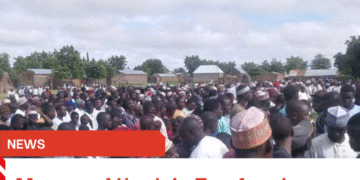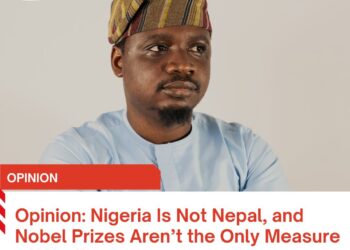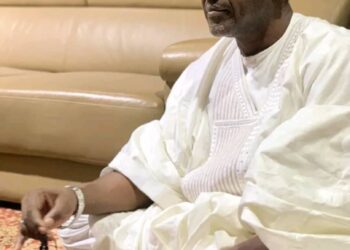For over fifty years, the National Youth Service Corps (NYSC) has been a cornerstone of Nigeria’s post-civil war effort to rebuild a fractured nation. By deploying tertiary-educated graduates to unfamiliar regions, it seeks to foster unity and dismantle tribalism, religious intolerance, and regionalism. Yet, despite its noble intent, these divisions persist, often deepening in universities and adulthood.
The NYSC’s current model, while valuable, intervenes too late. To forge a truly united Nigeria, we must reimagine the NYSC as a mandatory 18-month program for every Nigerian immediately after secondary school.
Shaping Minds at the Right Time
Youth is a critical window for identity formation. At 18, fresh from secondary school, young Nigerians are open to new perspectives, their biases less entrenched. Immersing them in a different cultural or regional setting at this stage isn’t a disruption—it’s an essential education in shared citizenship. By contrast, university graduates, typically 22 or older, often carry solidified prejudices, and the NYSC’s “culture shock” can entrench stereotypes rather than dismantle them. A pre-tertiary service would shape nationalists before parochial mindsets take root.
A Truly National, Immersive Experience
An 18-month program allows deeper integration than the current one-year model, which often feels like an extended camp. A proposed structure could include:
1. First 3 Months: Orientation and Civic Education Intensive training in national history, conflict resolution, and basic proficiency in a major Nigerian language outside the participant’s own, fostering cross-cultural understanding.
2. 12 Months: Primary Service Placement
Deployment to areas of national need—adult literacy, environmental projects, primary school support, or public health campaigns—harnessing youthful energy for grassroots impact.
3. Final 3 Months: Community-Led Projects
Corps members design and execute local development initiatives, applying skills and bonds built over the prior year.
This extended timeline ensures meaningful engagement. Corps members would live through cultural milestones—two Eids in the Muslim north, two Christmases in the Christian south, or the full agricultural cycle in rural communities. This isn’t just service; it’s lifelong integration into Nigeria’s diverse tapestry.
Inclusivity and National Development
Unlike the current NYSC, which only involves tertiary-bound youth, a post-secondary program would include every Nigerian, regardless of academic trajectory. This universality fosters a shared sense of duty and belonging. Moreover, deploying thousands of young people to underserved sectors—rural education, healthcare, agriculture—would drive transformative development. Imagine the impact of a motivated youth workforce bolstering Nigeria’s grassroots infrastructure.
Addressing Challenges
Critics may point to disruptions in academic progression. This can be resolved by making service completion a prerequisite for university admission, with credits awarded for skills gained.
Cost and security concerns are valid but surmountable. Increased funding should be seen as an investment in national cohesion—the ultimate foundation for stability. A decentralized, community-policed framework could enhance safety, with placements in vetted, secure locations.
A New Path Forward
The NYSC has played a vital role, but Nigeria’s 21st-century challenges demand a bolder approach. By engaging youth before university, we can build a generation that sees Nigeria not as a map of divisions but as a shared home of friends and neighbors. A pre-tertiary, 18-month NYSC is not just a policy reform—it’s an imperative for a united, prosperous, and empathetic Nigeria.
– Musa Agbadi writes from Lagos.
LIKE & FOLLOW US ON FACEBOOK, X, INSTAGRAM, LINKEDIN & YOUTUBE

































